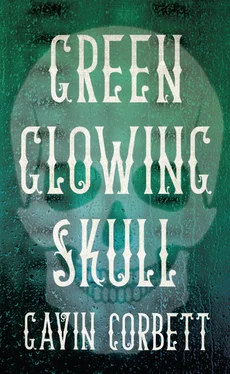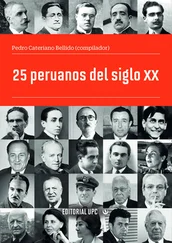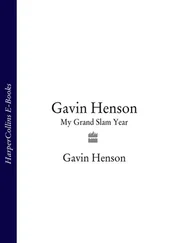‘You are very disciplined,’ she said.
‘How do you mean?’
‘When you said earlier that you’d done enough for the day, you clearly meant it.’
He looked at his glass of milk and laughed. ‘Oh no. I meant I’d done enough singing. Sure I haven’t drunk a drop of alcohol in over two years.’ He looked quickly about the bar. ‘Do you know,’ he said, and with a little impatience, ‘we have awful trouble hearing one another in this place. Let’s go to my room where it’s quieter.’
She rose from her seat, inhaling deeply. As she stood beside him again, he seemed to tighten slightly, like a slug. His face showed uncertainty, and his skin turned pink. ‘This way,’ he said, ushering her with his hand. It was as if he’d forgotten and now was reminded of the height difference between them. She became conscious, as she so often did, of her own ungainliness. He slipped a couple of paces behind her on the stairs. ‘This way,’ he said again on the landing on his floor. His room was a single-bed, very small, with a low ceiling. She had expected something bigger and smarter. Even the tartan-patterned curtains showed tobacco staining.
He pulled out the seat under the desk; she sat at the end of his bed. Taking the shape of the stiff wooden chair, he seemed to regain his composure, and studied her silently again. She folded her hands on her lap and mainly looked at his feet. She slid one foot out of her shoe, and slid it back in. She asked herself if she felt anything. Genuinely she did not. She didn’t know what she was doing. She had vowed to herself earlier in the week that she would not think any more about her actions, and would allow herself to be guided by events and impulses until something happened to her. Well, these were events, at least; but impulses — she did not feel any of those.
‘America,’ she said. ‘Tell me about it. I have always wanted to go there.’
‘Mm-hmm,’ he hummed into his cigarette, then ripped it from his mouth, blowing out the smoke. ‘America, yes, great country.’
‘Is it just like it is in the pictures?’
‘The thing about America,’ he said, and he returned the cigarette to his lips, and savoured a slow drag, ‘the thing about it is, the reason it’s the best country in the world, is that it takes the best of all times. It takes the best of the past, and thinks only of the best sort of future, and in that way it makes for itself the best kind of present. You take this country — it seems fixated on only the dankest aspects of its history. And the future! Well, there is no future on this earth, that’s what they tell you in Ireland! And what’s the point in earthly ambition when there’s no future!’
Jean nodded. ‘The best of the past. It’s a nice way to go about it.’
‘Do you know when you think back on your childhood, and you remember sunshine and ball games and ice cream, and you edit out the wet stockings and the fits and the fevers? A similar process happens to you when you arrive in America. All these people come from every part of the world, many fleeing hardship, and it’s as if, at the gates of New York and Boston, they shed the memories of war and famine, and they bring with them into the heartland the most beloved aspects of their histories and cultures, and make them into something again.’
‘And it’s full of millionaires, they say. And anyone can make millions.’
‘What they say is true. It’s true! You’re looking at a living example of it.’
‘A millionaire?!’
‘Well. Let’s just say I’ve made enough money in the couple of years I’ve been in America not to have to worry very much about work again.’
‘My goodness! How did you make your fortune?’
‘Sales. I was a travelling salesman.’
‘Did you see much of the desert? And the prairies?’
‘Yes. Both. But cities and prairies mostly.’
‘What are the prairies like?’
‘Lots of cattle and great big farms.’
‘And the desert?’
‘Buffalos and escarpments.’
‘What did you sell?’
‘I sold sheet music. Books of songs. I picked up some work with a music publisher, PD Decker, of Broadway. They were one of the last of their kind in New York. Specialised in all the very old Irish ballads.’
‘I would not have thought there was much money in that kind of thing any more.’
The man sank down in his chair, and joined his hands on his chest. He looked dead centre at the bed between Jean’s legs. ‘I was told I had a very narrow window of opportunity. When I set off, there were still people who bought songs in that form. There were many pianos still in front parlours. But I knew, anyhow, that within the souls of a great many of the American people was a latent affection for this sort of music. Americans love the emotion of these songs. It speaks to that side of them that yearns for their ancient homelands. So, it was a matter for me then, as a salesman, of trying to appeal to that side.’
‘And how did you do that?’
‘By using picturesque folk costume and through performance. I found it all very easy. I didn’t think I’d take to it as well as I did, but I did. Well, I suppose I am a performer by training. But I collected so many orders. I sold sheet music to people with not a trace of Irish ancestry — Russians, Armenians, Swedes, you name it. I sold sheet music to households with no pianos in them. The American people delighted me. They say this country here is the land of a thousand welcomes. Well, you should come to America. A stranger is often treated like a hero. A stranger is valued.’
Jean repeated the words: ‘A stranger is valued.’
‘The frontiersman and the moneymaker. They’re the two model heroes of America. The travelling salesman is the both of those in one. The motor car is his steed. You’re nothing without the motor car over there.’ He stretched his legs in front of him, touching the valance with his feet between Jean’s own. ‘Ah, it’s a good life for those with the gift for it. Full of adventure. Sometimes I would feel quite lost, an Irishman out in those big open spaces. But curiously it was rarely a lonely job, though people think that it is. There was a good camaraderie among those of us that did it. You met some interesting people on the road. Selling all sorts of wares. I owe a lot of my success to one man that I met. Though he was a rival to begin. That’s how I saw him. I used to see him ahead of me on the road, his car ahead of mine, all the time. I got to memorise his number plate. Every pit stop along the way his car would be there. Often I would be walking up a drive to a house and I would see his head and shoulders over the fence in the property next door. It was getting to be a bit of a joke. One day he turned around to me on a quiet suburban road in Chicago. He used to wear a suit of all-white. He turned around to me and he said, “Okay.” We went and had lunch. He was selling a religion. That was his product. That is another one of the great freedoms permitted in America. Anyone can be a prophet. Some can even be a messiah. I admire those people. They’re in business like any other. This man was preparing the world for the coming of a new god. It was the god of technology. An actual god — he was not speaking in figurative terms about technology itself. Like the god of cereal, or the god of the sea, this was the god of technology. This was what he believed, or had invented. It was all in his bible, or manual as he referred to it. To prepare for the coming of the god of technology, man had to make certain technological changes. People took his manual out of fear. But he was a decent sort. He assured me that my ideas could coexist with his. When my car broke down in Omaha, I rode with him. We went on a great circular tour of the western half of the United States, like Moody and Sankey, ending up back in Omaha to pick up my car. In those two days we visited several million homes. I don’t know how we covered the ground. We were like Santa Claus. Make love to me, please.’
Читать дальше
Конец ознакомительного отрывка
Купить книгу












